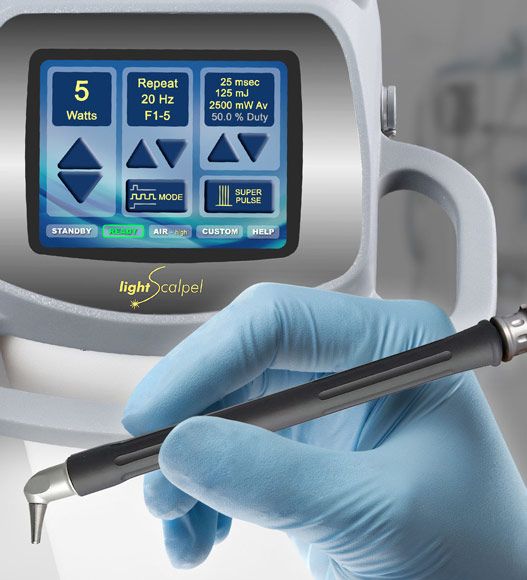
Tongue & Lip-Tie – Eugene, OR
A Gentle Solution for Tethered Oral Tissues
Tongue-tie, professionally known as ankyloglossia, is a congenital condition in which the lingual (tongue) and/or labial (lip) frenulum is too tight, causing restrictions of mobility and functionality. These oral restrictions can cause significant difficulty with key functions of the mouth, including: feeding (breast or bottle) swallowing, breathing, digestion, and speech. At For Beautiful Smiles, we offer effective treatment for tongue and lip-tie in Eugene, OR.
Why Choose For Beautiful Smiles for Tongue & Lip-Tie?
-
Pain-Free Laser
Frenectomies - Consultation & Treatment Performed at One Appointment
-
Fast Treatment with Virtually
No Recovery Time
Common Signs of Infant Tongue/Lip-Tie

Each mother/baby dyad is unique, and tongue/lip ties symptoms can present differently for everyone. Some common symptoms that may point to an infant having a tongue/lip tie are:
- Poor latch/inability to latch
- Fatigue/sleepiness during feeding
- Irritability while feeding
- Poor weight gain
- Clicking during a feed
- Dribbling milk at the breast/ bottle
- Inability to use/hold a bottle or pacifier well
- Digestive issues (such as increased gassiness, reflux, colic, vomiting, distended stomach)
- Maternal nipple pain/ damage (feels like the infant is compressing, chewing, gumming, or pinching the nipple)
- Increased maternal nipple/ breast infection
- Compromised maternal milk supply
Tongue and Lip Tie Assessment

A thorough clinical examination of the lip and tongue area is critical to frenulum evaluation. If an evaluation reveals symptoms of frenulum restriction, parents will be provided with information so they can make a fully informed choice about the course of treatment. Surgical release of a tight frenulum is called a frenectomy. Tongue or lip ties present in many different shapes and forms. Dr. Ben A. Sutter works extensively with all forms of ties and is trained to identify less common tie presentations. He can provide individualized assessment, advanced laser frenectomy treatment, and supportive post frenectomy care.
Treatment of Tongue and Lip-Tie

The treatment is carried out with a laser and is usually straightforward. General anesthesia, sutures, or complex oral medications are usually not needed. The benefits of laser surgery include: excellent precision, kills oral bacteria, and reduces bleeding, swelling, and pain. After treatment is done, post frenectomy care will be explained to the family including: pain relief, oral motor exercises, and post frenectomy massages/stretches.
Laser treatment can usually be done immediately following an initial consultation. The first visit usually takes about one hour. Due to laser safety regulations, parents are not allowed in the treatment area but are encouraged to stay with their baby right before/after treatment.
You are encouraged to feed and snuggle your baby as soon as possible after treatment; there is no better way to soothe a baby and start the healing process! You may see a little blood in your baby’s saliva or spit up post-op, and your baby may be a little fussier for the first 24-48 hours post-op.
Follow-up post frenectomy

Follow-up post frenectomy support is suggested within a few days to 1-week after treatment. Follow-ups generally take 30 minutes or less unless more in-depth support is needed. If you notice any increased redness, swelling, fever, chills, or inconsolable fussiness, then contact an emergency doctor or lactation consultant right away. If your little one seems to be extra tender or fussy, we recommend ample skin-to-skin care, feedings, or warm baths for soothing. If extra pain relief is needed, ask your provider what should be used and the dosage based on your infant’s body weight.
Feeding challenges may be multilayered and multifactorial. Therefore, the treatment of feeding issues often requires a multi-disciplinary collaboration of several providers, depending on the specific situation of the infant. Tongue-tie release is only one step in the process of optimizing feeding outcomes. Some key players in the circle of care for babies dealing with tongue and lip ties include: a board-certified lactation consultant (IBCLC), the treating provider (the doctor or dentist performing the surgery), bodyworkers (chiro/craniosacral, physical therapy, etc.), or additional care providers like a speech-language pathologist (SLP) or oral myofunctional therapist. Such therapies are often needed to improve function and reduce feeding stress, structural tension, improve strength, and achieve overall feeding progress. While a frenectomy is an important treatment option when there are tethered oral tissues, families are strongly encouraged to collaborate with their care team to optimize feeding outcomes overall.